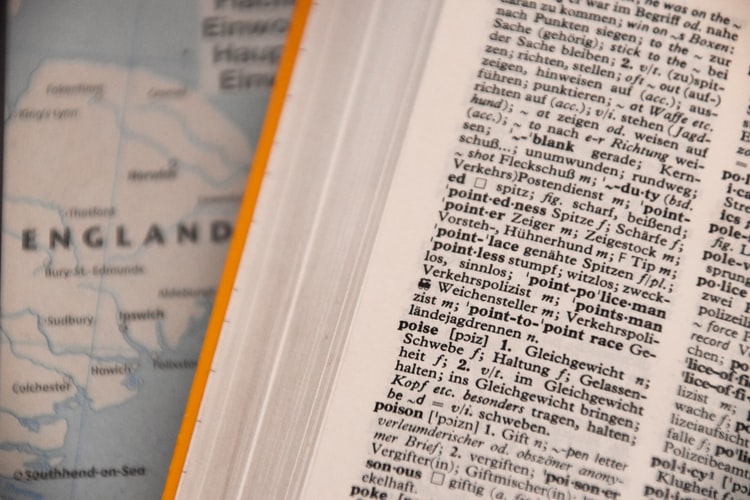
THE 12 VITAL TENSES OF THE ENGLISH LANGUAGE
The backbone of the English language is grammar. It’s hard to communicate your thoughts and ideas or get your point across without a proper understanding of grammar. By using word forms, clauses, sentences, or even fully structured text, grammar helps transfer meaning. Verb tenses play a significant role because they give us an idea of when an event occurs: in the past, the present or the future. For better clarity, take a look at the instance below.
Present Tense – I play basketball.
Past Tense – I played basketball.
Future Tense – I will play basketball.
This blog will help you understand types of tenses that are further divided into simple, progressive, perfect, and perfect-progressive forms.
- PRESENT TENSE: Present tense is used to identify things that are presently happening, to speak about something that regularly happens, to refer to a future scenario in certain cases and in certain subordinate clauses. If you hadn’t realised, this is the most common tense we use when we talk, since this tense tells of an action that is done NOW/CURRENTLY or an action that is done often.
- Simple present tense: This depicts the conduct that takes place in the present and the general realities, scientific facts, behaviours, etc.
Example:
Positive: He writes.
Negative. He does not write.
Question: Does he write? - Present continuous tense: This means an action that is in progress at the time of speaking.
Example:
Positive: He is writing.
Negative. He is not writing.
Question: Is he writing? - Present perfect tense: It is used to express an incident that has occurred in the past and its effect is still continuing. It serves as a bridge between the present and the past.
Example:
Positive: He has written.
Negative. He has not written.
Question: Has he written? - Present perfect continuous tense: This describes an incident that occurred in the past and is still going on.
Example:
Positive: He has been writing.
Negative. He has not been writing.
Question: Has he been writing? - PAST TENSE: It is used to talk about things or events that existed in the past, that is, before the present moment of speaking, as the definition implies. Its primary uses are to refer to an incident or circumstance that occurred once and is now over, to describe a situation that lasted in the past for a longer time but is now over, and to talk about an event that took place often or repeatedly but is now over.
- Simple past tense: It is used to speak about an action that has occurred in the past.
Example:
Positive: He knocked.
Negative. He did not knock.
Question: Did he knock? - Past Continuous Tense: This refers to a continuing action that has happened in the past at some time.
Example:
Positive: He was knocking.
Negative. He was not knocking.
Question: Was he knocking? - Past perfect tense: This refers to a past action that is done prior to any past action.
Example:
Positive: He has knocked.
Negative. He had not knocked.
Question: Had he knocked? - Past Perfect Continuous Tense: It refers to an action happening before a certain time in the past, with an emphasis on duration.
Example:
Positive: He had been knocking.
Negative. He had not been knocking.
Question: Had he been knocking? - FUTURE TENSE: The future tense is used to refer to events that have not yet occurred at the time of speech, but are due, expected, or likely to occur in the future. The key situations in which this tense is used are: to give or ask for information for the future, to speak about things that we think are probable or possible to happen in the future, but that are not absolutely certain, to refer to conditional situations, namely things that may or may occur if anything else happens, to make promises or threats or making decisions at the time of speaking.
- Simple future tense: It is used to build sentences about the time ahead.
Example:
Positive: He will (he is going to) talk.
Negative: He will not (he is not going to) talk.
Question: Will he (is he going to) talk? - Future continuous tense: It refers to an event that will take place in the future at some definite time.
Example:
Positive: He will be talking.
Negative: He will not be talking.
Question: Will he be talking? - Future Perfect Tense: An event that would have already occurred in the future before a certain period.
Example:
Positive: He will have talked.
Negative: He will not have talked.
Question: Will he have talked? - Future Perfect Continuous Tense: An event that would have already occurred in the future before a certain date, with an emphasis on the duration.
Example:
Positive: He will have been talking.
Negative: He will not have been talking.
Question: Will he have been talking?
Do not worry if this doesn’t make sense, just as yet. The important thing to keep in mind is to continue practising. Training is the essential element. Learn each of the 12 tenses of the English language with at least 5 examples to achieve mastery in it. After sufficient training and practice, you won’t think twice about English tenses. You will just use them appropriately and automatically.
